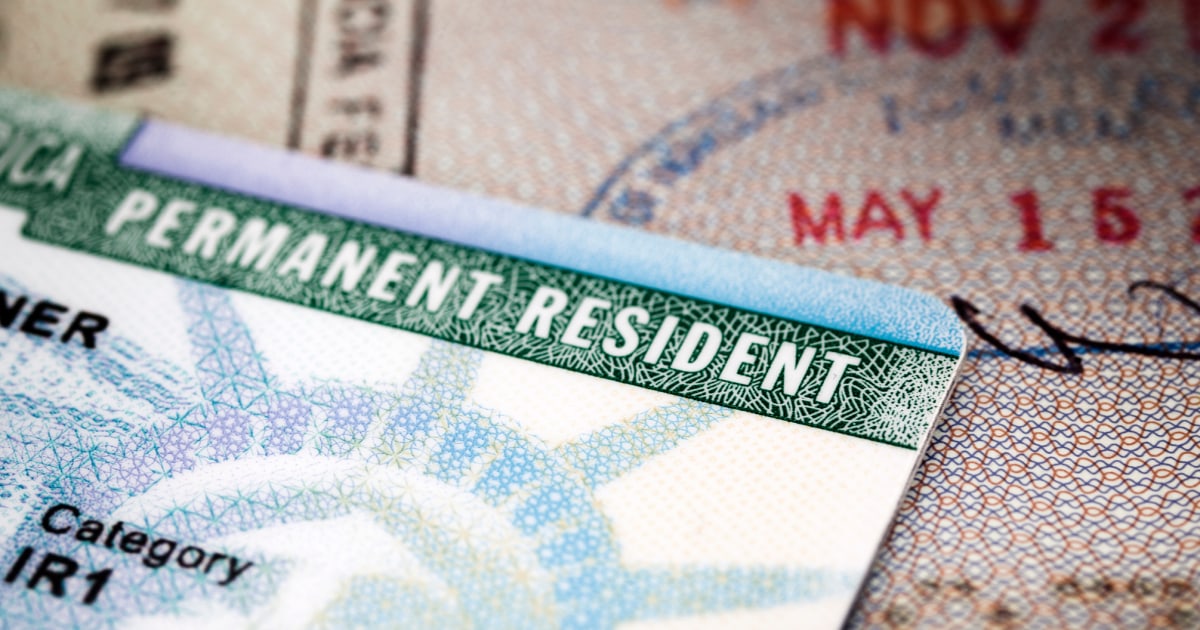U.S. immigration authorities rejected the green card application of Salvadoran immigrant Luis Acensio Cordero in part because of his tattoos, according to the Los Angeles Times, and the case has ended up in the Supreme Court and could set an important precedent.
The images in black ink of the Virgin of Guadalupe, theater masks, dice and playing cards were for him, according to the aforementioned newspaper, memories of his childhood in high school. Immigration authorities, however, proved that Acensio was a member of the MS-13 criminal gang (the Mara Salvatrucha).
Acensio and his wife, lawyer Sandra Muñoz, responded with a lawsuit and managed to get the Ninth Circuit Court of Appeals, based in San Francisco (California) to agree with him, but the government presided over by Democrat Joe Biden appealed and now the case will be reviewed by the Supreme Court, which must decide this Friday whether to take it under its consideration or let it pass (in which case the victory would be maintained of Acensio).
[Are you thinking of applying for U.S. citizenship? An expert clarifies frequently asked questions on the subject]
Acensio, now 47, was an undocumented migrant when he met Munoz in 2008 at a wedding. They married two years later, and in 2013 the man applied for his green card on the basis that his wife is a U.S. citizen.
Two years later, he returned to El Salvador for an interview at the U.S. consulate. He hoped to return in a few weeks, and had even bought a plane ticket, according to the newspaper. At the security test they asked her to strip naked and took photos of her tattoos, asking her why she got them, says the Los Angeles Times.
[Trump vows to deport millions of migrants if he gets to the White House. But his past raises doubts that it's possible.]
A consular officer asked him about his criminal record and he described the only time he was arrested after a fight with a friend; He was released in three days without charge. Six months later, he received a notification that his application had been rejected, and he was denied entry to the United States because, they claimed, he would commit illegal acts if he returned.
The consular officers did not give him any explanation or avenue to complain. In 2017, he filed a lawsuit in U.S. District Court in California, and finally learned that he had been denied a green card because the government believed he was a member of MS-13 based on the interview, his criminal history, and his tattoos.
During these years of legal proceedings, Acensio has settled in El Salvador and has created a tourist tour company with electric ATVs. His wife, 54, has continued his life in California, where she was voted lawyer of the year by the Daily Journal following a $23 million settlement against Walmart.
Acensio lives apart from his daughter, who is now 17 years old. But the couple is still in touch, the newspaper says, through video calls and trips together to other countries, in addition to Muñoz's stays in El Salvador.
In October 2022, the Ninth Circuit Court of Appeals concluded that the federal government had violated Muñoz's fundamental rights; it was the first time that a court had rejected the government's request to establish the inviolability of an immigration decision of a consulate.
Her case has already set a precedent, helping other families reunite, according to the newspaper. But the Supreme Court's decision is still pending: "A tattoo in itself does not mean that someone is a bad cop, a bad person," Muñoz explains, meanwhile. "You can't simplify it that much," he concludes.

